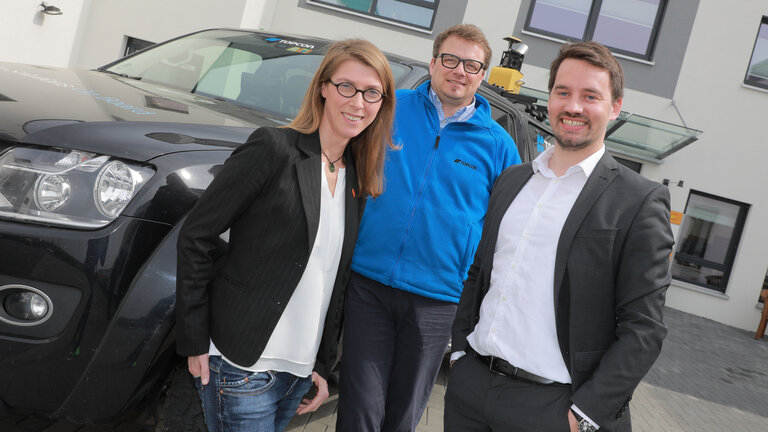Benches individually adapted to suit seniors’ requirements that can be reached in just a few minutes. Information spotlights provide information and orientation for senior citizens. Street lights adjust their strength to suit the visual faculties of passers-by and sensors alert people to danger at street crossings and junctions. The solutions that are being devised in the UrbanLife+ research project for seniors to combat everyday obstacles are as simple as they are ingenious. Describing the guiding principle behind the project, Mustafa Kösebay, Associate Partner at Drees & Sommer SE, said: ‘It is important for us to take all groups of society into account in the design of urban public spaces and to meet their needs. The objective should be to facilitate the greatest possible degree of participation in public life.’ The plan is for Human Technology Interaction to assist seniors to be able to move around the city safely and without hindrance.
Project partners from the fields of science, social welfare, economics and administration – from both inside and outside the region – are working hand in hand within the UrbanLife+ research consortium to bring the project to fruition. This includes international consulting and project management company Drees & Sommer which has been contributing its urban planning and development expertise to the project. Two of Mönchengladbach’s city districts will become pioneering examples of how to adapt urban precincts to demographic change.
Safety Atlas Shows The Way
The next stage in this intergenerational urban design project – the first major project of its type in Germany – is to carry out a drive-through survey of the public spaces in the Rheindahlen and Hardterbroich-Pesch city districts. This will be undertaken by geodata experts Topcon who will use their mobile recording technology to take digital measurements of both districts of the city.
Explaining how the survey data would be processed, Mustafa Kösebay said: ‘The data we obtain will be used to generate terrain models and will provide us with important information on how to keep public spaces free of obstacles.’ According to Drees & Sommer’s infrastructure and urban development experts, ensuring mobility within city districts is a critical factor in facilitating social participation.
The survey findings are important elements of the Safety Atlas which Drees & Sommer is responsible for drawing up and which will provide city planners in the future with important information as to the requirements of the 65plus generation with regard to public spaces. Once the Mönchengladbach project has been completed at the end of 2020, numerous other cities are expected to benefit from this exciting research project in the Lower Rhine region.
A great deal more information on the project can be found at https://www.urbanlifeplus.de.
